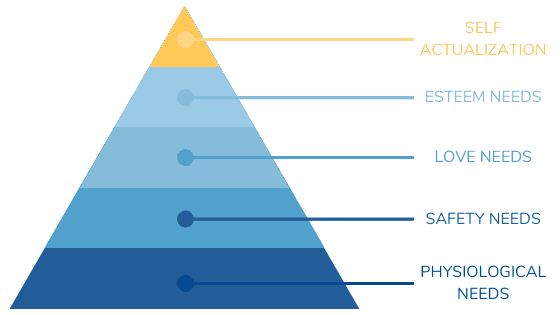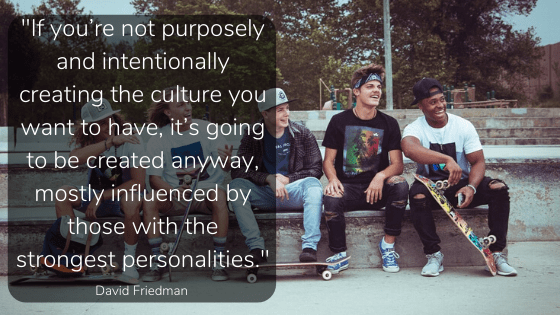Why Unschooling is Better for My Family Than Sudbury Schooling
My journey with alternative schooling began with an investigation of homeschooling, which led me to examine unschooling, and from there to look at Sudbury schooling. Along the way, I’ve also done an in-depth examination of Montessori and a few other schooling options I’d never even heard of. It’s been an amazing learning journey for me.
All of my research led me to identify primarily with self-directed education, both home-based (often labelled as “unschooling”) and school-based (the primary example being Sudbury schooling). It is at this point that I found myself stuck trying to figure out whether home-based or school-based self-directed education would be the best fit for our family, so I continued to investigate both models.
At first, I leaned towards school-based because I believed that self-directed education would best take place amongst a plethora of peers. This led me to immerse my family in the local Sudbury School to gain a better understanding. My wife and I became volunteer staff members, taking our 3- and 1-year-old sons with us. After several months, we decided to decrease our involvement from two days to one day per week at the Sudbury school in order to give us more room and space to properly consider home-based self-directed education.
Over the past couple months, I’ve come to the realization that home-based self-directed education is the better option for our family. I view the home as the best environment for supporting self-directed education. In short, I have slowly come to favor home-based over school-based self-directed learning. For me, it comes down to the importance of needs and culture.
The Importance of Needs
From the standpoint of Maslow's hierarchy of needs, I view the home as a place where children's basic needs can most easily be met, allowing them to more easily and naturally engage in self-directed learning. A child who has loving parents will naturally have their physiological needs (food, water, shelter, warmth, and rest) and safety needs met in the home. I also view a parent as the most natural source of love and esteem needs.

A loving parent has unconditional love for their child, whereas peers do not. Peers may be your friend one minute and then your enemy the next. Peers can't be counted on to consistently meet love and esteem needs, so when peers are relied upon to meet them, I think children become hyper-focused and fixated on these needs, unable to move onto the highest level need of self-actualization in which they care more about their own interests and passions than what other people think.
When I am at the Sudbury school, I don't see the majority of kids engaged in their own passion, but instead spending almost all their time oriented around their peers, seeking to meet their love and esteem needs. I worry that many students at the school are engaged in peer-oriented learning as opposed to self-directed learning. At home, I believe a child can feel secure in their love and esteem needs and spend most of their day engaged in the self-actualizing activity of self-directed learning.
While learning how to get along with peers is important, I view other forms of learning as far more important such as:
- Learning how to get along with others in unconditional love relationships such as the parent-child and husband-wife relationship
- Learning how to have a meaningful relationship with one's own parents and siblings since these relationships are far more likely to last a lifetime than any other relationship
- Learning how to be one's own independent self apart from one's peers, which I believe comes best through spending the majority of one's time in self-actualizing activities (as opposed to struggling to find a way to get one's love and esteem needs met through one's peers)
When I think about the skills a child needs to be a fully functioning and self-actualizing adult, I view getting along with peers as important but far less important than learning the above three things. I spend 50-percent of my adult life with my family, 40-percent working on my passions, and less than 10-percent focused on building relationships with my peers. I think having a deep, meaningful relationship with one's family and one's self is far more important than having relationships with one's peers who in many cases are not as capable or available for true intimacy.
The Importance of Culture
Another reason I have come to favor home-based over school-based self-directed learning is that the culture in a Sudbury School is at the mercy of the students who happen to get enrolled in it. When a culture isn't consciously created, it will be created by the loudest members of the group, which in many cases is not a good thing.

I see this happening at the Sudbury school in which only a single group of teenagers attends the school meeting. Without intentional intervention, that group's values become the values of the school. For instance, at one point we got written up and complained about for volunteering our weekend to re-organize the kitchen. In this situation, the value of disrespect for volunteering adults was being propagated. Values such as gratitude and understanding were not.
In addition to the loudest individuals in a group, a culture is also influenced by the popular media found within that group. In a home, parents can consciously fill their home with books, movies/videos, and video games that support their family values. In a Sudbury school, the media is at the mercy of whatever books are donated, whatever movies/videos students share with one another, and whatever video games students bring to school. Most of the video games being brought into the school promote values that are far removed from important universal principles such as love, peace, and respect for human life.

In a home, parents can consciously create and maintain a culture infused with positive values. The culture is in the hands of the parents instead of at the mercy of a random assortment of the loudest teenagers who enroll in the school. Parents being responsible for the culture is good for many reasons:
- Parents, due to life experience, better know what values are positive and which are potentially hazardous to a meaningful life.
- Parents will pass on their own culture, which will result in greater cross-generational unity and harmony.
- Children are more likely to adopt positive values based on universal principles.
While I think it is important for children to gain an understanding of the greater culture that surrounds them, I do not believe that a culture propagated by the loudest teens at a school is the best representation of that culture. I also do not believe it is important for children to internalize the greater culture that surrounds them. There are many issues with American culture and American values. I view adopting the culture of one's family of origin, especially when it is led by caring adults who value self-directed learning and being one's own unique self, as the best option.
When it comes to cultural transmission, I believe it is crucial to consider where children are spending most of their productive time each day. I don’t think the morning and evening of a day are often very productive as these times of the day are often spent getting children ready for school or bed. Children are often tired and cranky at these times having just woken up or having just gotten home from a long day at school. These do not seem to be effective times of the day for cultural transmission. I fear this could result in the culture of the school being adopted in place of the family culture.
Now, don’t get me wrong. The goal is not for children to grow up blinded by their family’s culture and unaware of the world around them; rather, I think a healthy balance is found when children adopt their family’s culture while gaining an understanding of how to navigate the greater culture that surrounds them. I think home-based self-directed learning can best accomplish this. Children might spend the majority of their day at home, but can still venture out for various activities where they can make friends and acquaintances. This way, the best times of day are still preserved for the transmission of family culture, and children are still exposed to and presented with opportunities to navigate the greater culture that surrounds them.
It might be argued that seeking to pass on one’s culture and values to their children goes against the basic premise of self-directed education, but it should be remembered that children do not learn in a vacuum. They learn within a learning environment, and to me, the most important element of that environment is the culture. Surround a child with a culture that fulfills their basic human needs, promotes universally good principles, and empowers, and that child will flourish. Surround a child with the opposite culture, and their hopes of any sort of self-direction and self-actualization will be severely compromised.
Surround a child with a culture that fulfills their basic human needs, promotes universally good principles, and empowers, and that child will flourish
Conclusion
In conclusion, I am a firm supporter of self-directed education. I view Sudbury schools as one way to accomplish this that could work wonderfully for some families. For families such as mine that have the ability to provide it, however, I view home-based self-directed education as the better option. This isn’t to say that home-based self-directed education has no flaws since all systems have them. It’s just to say that for my family, the flaws in the home-based self-directed educational system are tolerable and the benefits are exactly what we are looking for.
Post-Publishing Update
After taking a break from the local Sudbury school for a while, we decided to start attending again but just one day per week this time. This way, we can still be a part of the self-directed learning community without feeling like the school and its culture is taking precedence over our family. Our goal is to maximize the positive aspects of the Sudbury school and limit the influence of the negative aspects. In essence, we now view the Sudbury school as one of the many useful tools in our self-directed education toolbox (See "How We Are Planning On Homeschooling Our Kids").
Hi fellow human! Thanks for visiting my personal blog. I’m an intentional family man who is currently passionate about parenting, family culture, homeschooling, and self improvement. This blog isn’t a business. It’s just my way of connecting with people with just as much passion for these topics as me. So, if you enjoy my musings, be sure to reach out.


4 comments to “Why Unschooling is Better for My Family Than Sudbury Schooling”
Sarah M Decker - February 7, 2020
I enjoyed your blog post. Have you read Hold onto your kids? That has some similar ideas to what you’ve talked about.
Andrew Benjamin George - February 9, 2020
Hi Sarah! Thanks for your comment. And yes, we just finished reading it. That book really helped us make the final decision to do unschooling instead of continuing at the Sudbury school. Really helped me see the importance of family relationships.
Theresa - May 30, 2023
Your post resonated with me so much! I am on the very same journey you were on at the time of writing this and feel similarly regarding your conclusions. Thank you for sharing your insights, this really helped me.
Andrew Benjamin George - September 28, 2023
Glad you found this article helpful! I hope you are able to find the right schooling approach for your family!